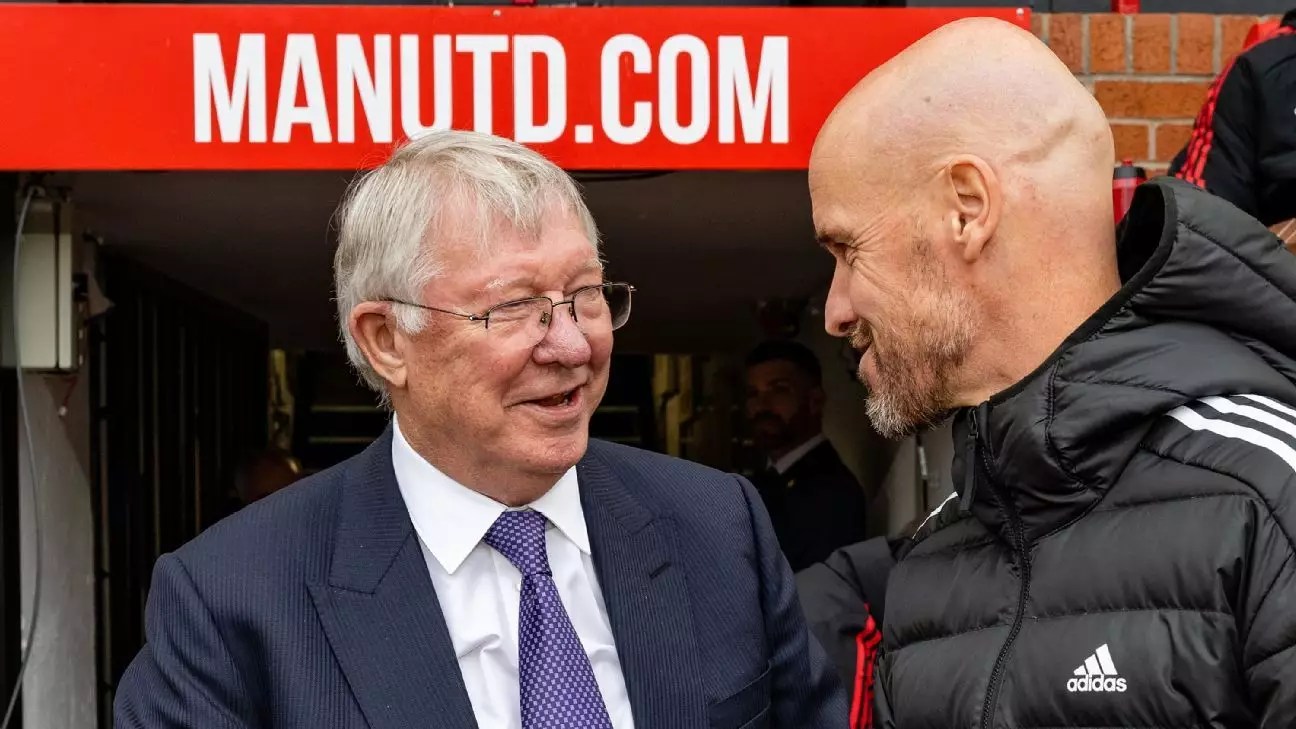The recent announcement regarding Sir Alex Ferguson’s departure from his ambassadorial role at Manchester United resonates profoundly with fans, players, and new management alike. Erik ten Hag, the current head coach, acknowledged the significant influence that Ferguson has had on the club’s identity and success during his 27-year tenure. Ferguson’s era was characterized by unparalleled triumph, securing 13 Premier League titles and two Champions League trophies—a benchmark that remains an aspiration for the club even a decade later.
Ten Hag’s recognition of Ferguson’s impact underscores a crucial element in football: legacies do not fade overnight. As the club embarks on a new phase, the loss of Ferguson’s direct involvement on official matters raises questions about how Manchester United will navigate its path back to the top of English football. Ten Hag highlighted that while the club may not currently mirror the illustrious standards set by Ferguson, the ambition to reclaim that legacy remains intact.
While the transition may pose challenges, it also opens avenues for growth and re-evaluation. Ten Hag emphasized a key understanding that Manchester United spent six years without trophy victories prior to his leadership. This historical context is vital; it reminds stakeholders that the club is in a recovery phase, one that requires patience and strategic execution.
The Dutch manager further expressed gratitude for Ferguson’s willingness to continue providing guidance and support, suggesting that his experience will still play a role despite the formal exit. This realization can foster a connection between the past and the future, blending tradition with modernity as the club seeks to construct a competitive squad.
Looking ahead, United’s upcoming clash against Brentford symbolizes an opportunity to break free from the recent winless streak. The psychological weight of five games without a victory can be daunting, yet it provides an impetus for players and management alike to rally and assert their potential. Ten Hag’s acknowledgment of the previous season’s triumphs against Brentford offers a glimmer of hope, even amid uncertainty regarding squad stability—particularly with key players like Scott McTominay moving on.
McTominay’s transfer to Napoli reflects the complexities within football finance, especially under the Profit and Sustainability Rules. Ten Hag’s candidness regarding the club’s constraints sheds light on the broader financial landscape that modern football clubs must navigate. The reality that selling homegrown talent is sometimes an unavoidable decision speaks volumes about the financial pressures that linger even over renowned institutions like Manchester United.
Ultimately, the path forward for Manchester United hinges upon melding the wisdom of the past with ten Hag’s innovative approach to management. The ex-manager’s unwavering commitment to excellence necessitates a reformed attitude among players and staff, focusing on establishing a sustainable and competitive environment. Thus, navigating the current epoch—with all its inherent challenges—will greatly influence whether Manchester United can once again ascend to their rightful place among football’s elite. Each decision, every match, feeds into the larger narrative of recovery and renaissance within one of football’s most storied clubs.


Leave a Reply